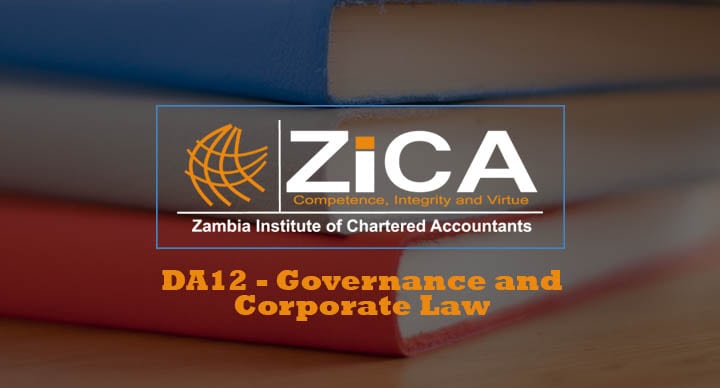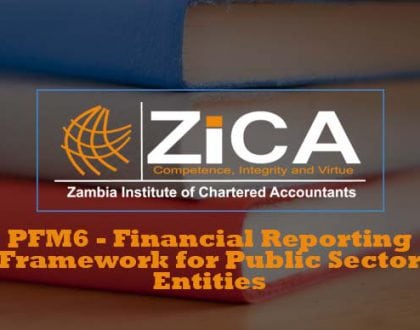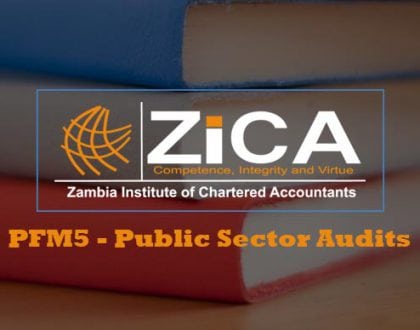DA12-Governance and Corporate Law
No access plans exist.

Course Features
Course Details
D12-Governance and Corporate Law
Learning outcomes
On successful completion of D12, students should be able to:- Describe corporate governance systems and policies
- Explain types of limited companies, and the articles of association, its effect and alteration
- Compare share and loan capital and explain the rules relating to the financing of companies
- Explain the rules relating to the management, administration and governance of companies
- Explain the legal rules relating to corporate insolvency
| Topic | Weighting |
| Corporate governance | 25% |
| Companies and legal personalities | 20% |
| Capital and financing of companies | 20% |
| Management, administration and governance of companies | 20% |
| Corporate insolvency | 15% |
Content
-
Corporate Governance
- Principles of corporate governance
- Explain the principles of good corporate governance
- Explain the importance of the principles of good corporate governance
- Corporate governance legislation and codes
- Explain the provisions made by international codes of corporate governance
- Distinguish between principles based and rules based governance frameworks
- Board of directors
- Explain the roles and responsibilities of the board of directors
- Describe the structure of an effective board
- Directors’ remuneration
- Explain the importance of appropriate director’s remuneration systems
- Describe the various types of director remuneration systems
- Explain the importance of performance based remuneration systems
- Relations with shareholders and stakeholders
- Explain the differences between shareholders and stakeholders
- Explain the importance of dialogue between the various stakeholders and the company
- Describe the importance of the annual general meeting
- Reporting on corporate governance
- Explain the role of management in reporting on corporate governance
- Describe the functions of the audit committee
- Describe the importance of effective communication and accountability 86
- Principles of corporate governance
-
Companies and Legal Personalities
- Concept of separate personality
- Explain the consequences of separate legal personality
- Describe examples of situations where separate personality will be ignored
- Types of companies
- Identify and explain the different types of companies
- Incorporation of a company and its implications
- Describe the procedures for forming and registering companies
- The Articles of Association – effect and alteration
- Explain the role and duties of company promoters
- Concept of separate personality
-
Capital and Financing of Companies
- Share capital
- Distinguish between different types of capital
- Explain the differences between different classes of shares
- Loan capital
- Explain companies borrowing powers
- Capital maintenance
- Explain the concepts of capital maintenance and capital reduction
- Share capital
-
Management, Administration and Governance of Companies
- Company directors
- Explain the roles of directors
- Describe the ways in which directors are appointed and leave office
- Powers and duties of Directors
- Describe the powers of the board, the chief Executive and individual directors to bind their company
- Explain the duties that directors owe to their companies
- Officers of the company
- Explain the duties and powers of a company secretary
- Explain the duties and powers of company auditors
- Meetings and resolutions
- Describe the purposes of annual general meetings and other general meetings
- Describe the procedure for calling general meetings
- Distinguish between different types of resolution
- Company directors
-
Corporate Insolvency
- Liquidation and winding up of a company
- Discuss the ways that a company can cease to exist
- Compulsory winding up
- Explain the meaning of compulsory winding up
- Voluntary winding up
- Explain the meaning of voluntary winding up
- Describe the main procedures associated with voluntary winding
- Liquidation and winding up of a company
up Format of the exam
| Section | Marks |
| Section A: 2 compulsory questions, 25 marks each | 50 |
| Section B: Any 2 out of 3 questions, 25 marks each | 50 |
| TOTAL | 100 |
Recommended reading
- ZiCA D12 Governance and Corporate Law Study Manual
This course does not have any sections.





